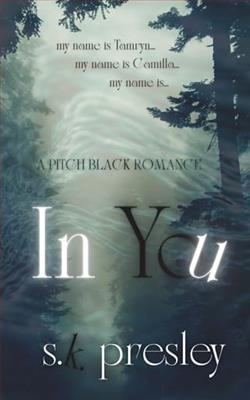Page 34 of Confounding Oaths
“And what honour would that be?” asked Kumar, breezily.
Jackson grinned knives. “That’s why I saidalmost.”
While he had been comfortable-ish conversing with Kumar, there was something about Jackson that still unsettled Mr. Caesar. Perhaps it was the perpetual undercurrent of murder.
To his relief, before he needed to choose a reply, the captain returned to the Folly and fixed the little group with a suspicious look.
“Something up?” he asked. Which gave Mr. Caesar a momentary pang of guilt since it did not, in general, bode well for one’s relationships when the other party assumed you only wanted them when you wanted somethingfromthem.
Mr. Caesar shook his head with a little too much emphasis. “No more than usually. Which is to say that my sister is still in thrall to an unknown fairy, my best hope of assisting her lies in a plan that my least reliable friend is formulating to chase down a changeling we have met all of twice, and I am profoundly helpless to do anything to assist anybody until she has gathered herself.”
“A sharp tongue,” Kumar stage-whispered, “a challenge, and helplessness. You’re onverygood ground.”
Either not hearing or pretending not to, the captain carried on with his not-exactly-interrogation. “So you’re here for what, the beer?”
“I thought I might …” I was, I had to admit,achingto hear how Mr. Caesar finished that sentence. I had no idea what he thought he might.
“Might what?” asked Captain James with half a smile. “Take me to the opera?”
Kumar and Jackson burst into guffaws.
“Oh, youshould.” Kumar was capable, it seemed, of smiling quite wickedly if he had to. “Captain, I would love to know your thoughts onFidelio.”
“Fuck off,” replied Captain James. Which was a shame because Ialsowould have loved to hear his thoughts onFidelio.
But despite everything, Mr. Caesar—perhaps from a lack of any other options—responded with a clear if ominous “Why not? We’re a stone’s throw from Covent Garden and it might be a welcome distraction.”
Something glimmered in the captain’s eyes. Something I found extremely promising. “All right,” he said. “But I’d better not be letting myself in for anything awful.”
He was. That isn’t foreshadowing. I’ve just never been a fan of opera.
Dedicated as I am to my calling, I drew the line at hours of singing in German, so I reconvened with the captain and Mr. Caesar as they were being disgorged, along with a hundred other patrons, into the streets of Covent Garden following the performance.
“What the fuck,” the captain was asking, “was that all about?”
Mr. Caesar took a strengthening breath. “Well, you see, it tells the story of Fidelio who is a … a very faithful man … hence his name. But he’s torn between his duty to, I suppose, his country? And his love for …”
“You haven’t got a clue, have you?”
Sheepishly, Mr. Caesar shook his head. “Not really, no.”
“Do you even know which one Fidelio was?”
“The tall one? Probably the one who did the most singing? The thing about opera is that nobody really goes for the show. They go to watch other people and gossip.”
The captain considered this. “Seems an expensive way to go about it. I’d have thought you could do that anywhere you liked for free.”
“But at the opera,” Mr. Caesar explained, “you can do it exclusively to the sorts of people who can afford to go to the opera.”
Had any further illustration been needed of the opera’s primary social function, it was provided at once by a cry of “John, fancy seeing you here.” A cry that emanated from an extraordinarily well-turned-out Mr. Ellersley. “And with company, no less. So good to see you showing your appreciation for the fine bodies of our fighting men.”
“I think you mean ‘our fine body of fighting men,’” Mr. Caesar corrected him, knowing full well that it hadn’t been an error.
“Oh, do I?”
“Who’s this?” asked the captain, his hand going at once to a sword he wasn’t wearing.
“Old friend,” replied Mr. Caesar with a studied laconicity. “And I cannot overemphasise the wordold.”















